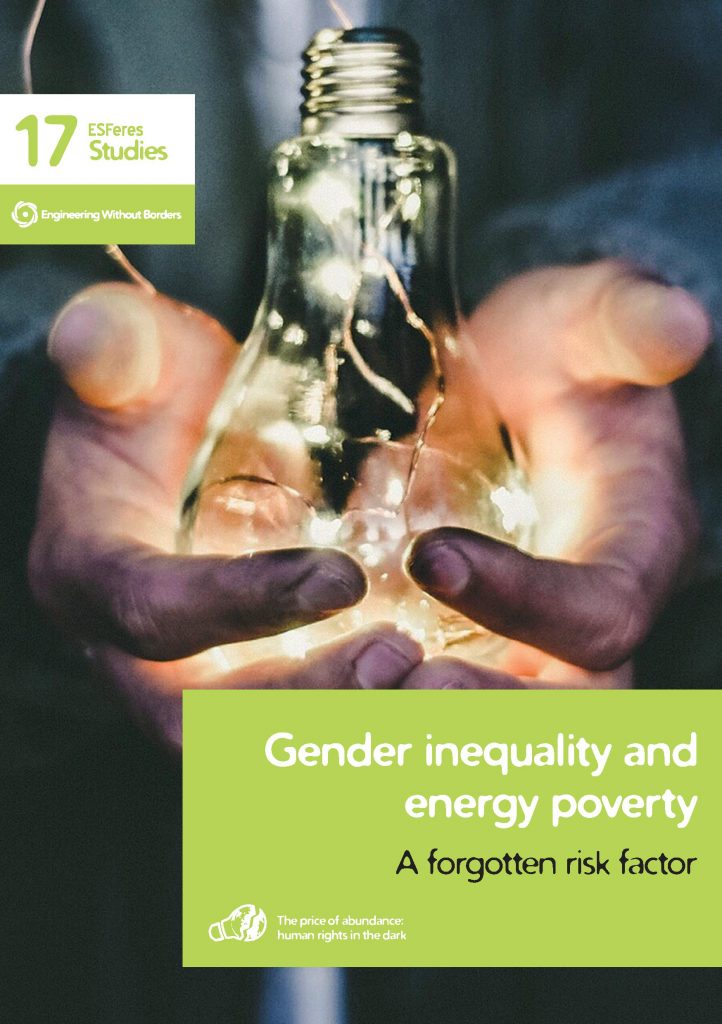We live in an age of information and misinformation. On a daily basis, some tell us that we are part of an egalitarian society where feminism is no longer supposed to be necessary; others tell us about the importance of feminism in guaranteeing equal opportunities and meeting the needs of everyone. Proponents of each position dismiss the opposing view and express their own “objectively”.
Faced with the impunity of the energy oligopoly and the slow reactions of the Administration, those affected are organizing themselves in platforms of struggle, activism and mutual support such as the Alliance Against Energy Poverty (who, alongside the Platform of People Affected by Mortgages (La PAH) and the Observatory DESC, promoted Law 24/2015). We see in these platforms a clear majority of women who empower themselves to participate and fight for their rights.
Does this relate to the gender inequality that surrounds us? Is gender currently a risk factor for energy poverty that we are not considering? Answering this question requires an analysis of the feminization of poverty, the elaboration of public policies that mainstream gender, and the search for effective data. Doing so could shed light on misinformation, support our initial hypothesis and, therefore, address existing inequalities and translate into the effective incorporation of gender inequality as an aggravating aspect and risk factor in energy poverty.
Due to the breadth of the question, we want to focus this study on the city of Barcelona. We have also done so on the basis of the belief that it is necessary to build effective policies at the municipal level that can include the participation and vision of those affected and other experts.
In this context, we would like to highlight the data contributed by the Institute of Social Services (analysis of the work of the Social Services Centres) and the contribution by the Association of Environmental Sciences, which has been indispensable due to its knowledge of the subject and its rigour in the treatment of data.
Finally, we would like to express gratitude for and highlight the importance of the collective interview we conducted; five members of the Alliance against Energy Poverty have contributed their vision and experience, and have been essential in the preparation of the study.
By Irene Gonzalez Pijuan
The full report can be read here.
The Gender inequality and energy poverty report is authored by Enginyeria Sense Fronteres in collaboration with the Alianza contra la Pobreza Energética and with the support of Agència Catalana de Cooperació al Desenvolupament.
